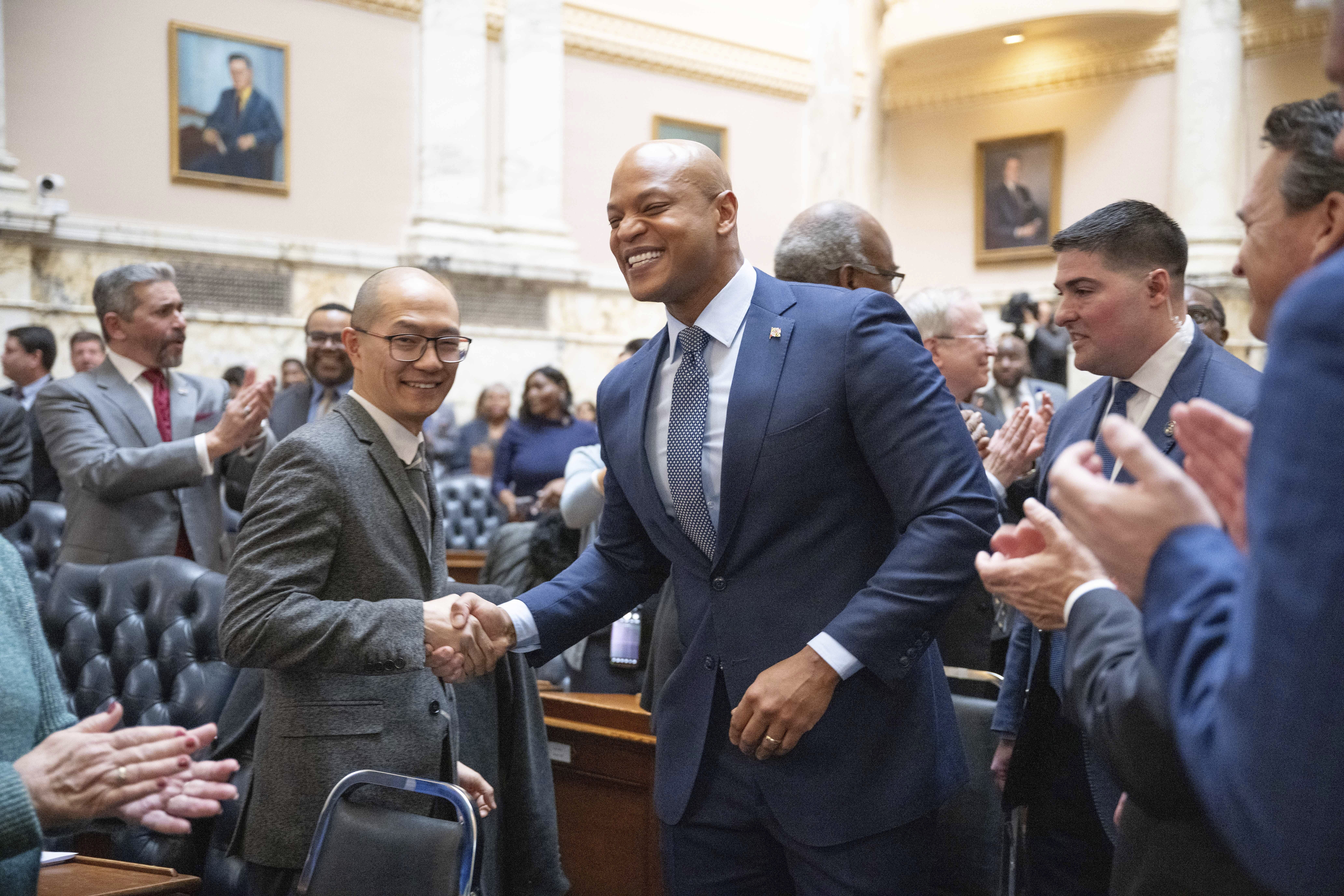
Whether Marylanders go to their favorite salon for a shampoo and blowout, or take their dog to the groomer for a fluffy new look, they could be paying more under a proposal from a state lawmaker.
Del. David Moon, the House Majority leader in Annapolis, told the Ways and Means Committee this week he had been keeping a “nervous eye” on the state’s fiscal outlook, and said his plan to cut the sales tax from 6% to 5% but add taxes to a range of services, is a needed “conversation starter.”
Moon, who found his bill facing a long list of opponents in Annapolis, said, “I’m not an economist, but I can do some basic math.”
Moon said between the $3 billion structural deficit faced by the state and the need to fund the massive education reforms in the state’s Blueprint for Maryland’s Future plan, “We need to get going on the conversation about what the heck we’re going to do about our deficits.”
Benjamin Orr, president and CEO of the Maryland Center on Economic Policy, favors the bill.
Orr told lawmakers the change makes sense because “the decline in sales tax [revenues] is because of the shift from goods to services in our economy.”
The first part of Moon’s proposal — the plan to cut the sales tax from 6% to 5% — got the attention of Del. Kevin Hornberger, a Republican from Cecil County, who told him, “I love the part about the reduction of the sales tax to 5%.” But other lawmakers balked at the idea of adding taxes to services for everything from spa treatments to tax preparation.
Del. Robert Long, a Republican from Baltimore County, told Moon he’d often joked about two things being certain — death and taxes — but he said, “Now, they’re going to get money out of my pocket when they put me in the ground! I’m just being honest.”
Del. Jason Buckel, the House Minority Leader, challenged the value of bringing the bill late in the session.
Buckel added, “Gov. Moore’s said over and over again he doesn’t want things like this in session, [Senate President Bill Ferguson has] said it over and over again.”
Buckel continued, “What’s the point in us — on crossover week — doing this?”
“Crossover,” which occurs on the 69th day of Maryland’s General Assembly’s 90-day session, serves as a deadline for lawmakers to get their bills approved and over to the opposite chamber, otherwise those bills would be subject to another step for ultimate passage.
Moon responded that he couldn’t control what others do, but that, “I can only do what makes sense … for Maryland and the House.” He pointed out that the state’s books “are off by another quarter of a billion dollars” and that’s further ballooned to a half-billion dollars.
Mike O’Halloran, with the National Federation of Independent Business, told lawmakers the federation opposed the bill.
“There is not a single aspect of Marylanders’ lives this tax hike wouldn’t touch,” O’Halloran said. “Things like cutting grass, cutting hair, even the clown sculpting balloon animals at the county fair is getting hit by this.”
Gov. Moore’s $63 billion budget proposal is designed to balance the state’s budget by dipping into reserves, borrowing more and making cuts to some programs.
Get breaking news and daily headlines delivered to your email inbox by signing up here.
© 2024 WTOP. All Rights Reserved. This website is not intended for users located within the European Economic Area.








